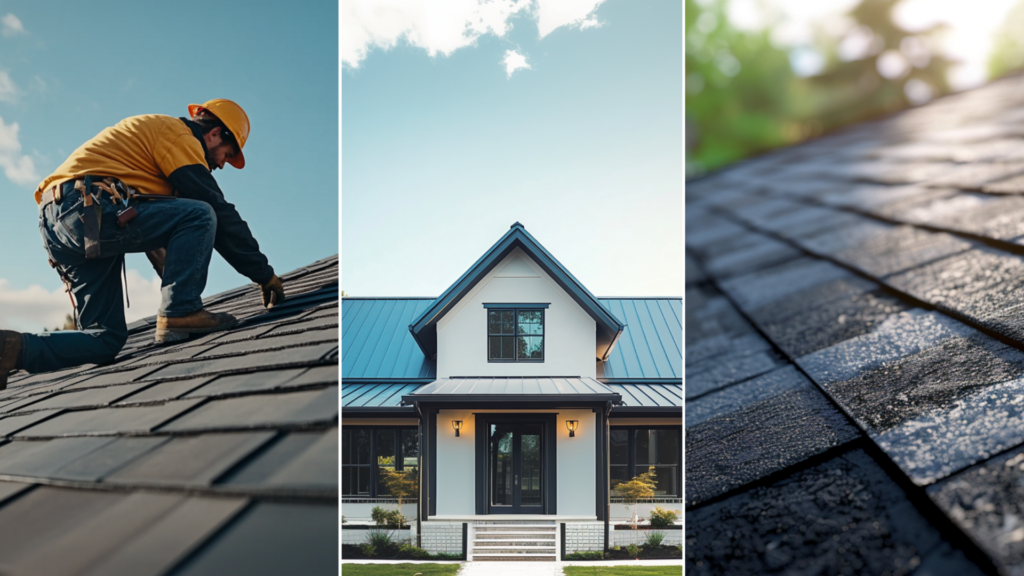
Understanding Different Types of Roofing Materials
Roof type determines a home’s longevity, aesthetics, and energy efficiency. Roof type influences the overall look of a property while also affecting its ability to withstand various weather conditions. Roof-type options range from traditional materials like asphalt shingles and wood shakes to modern solutions like metal or synthetic materials. Roof type selection depends on factors like climate, budget, and architectural style, which are critical in making the right decision. Roof type should be carefully considered to ensure it complements your home while meeting functional needs like durability and sustainability.
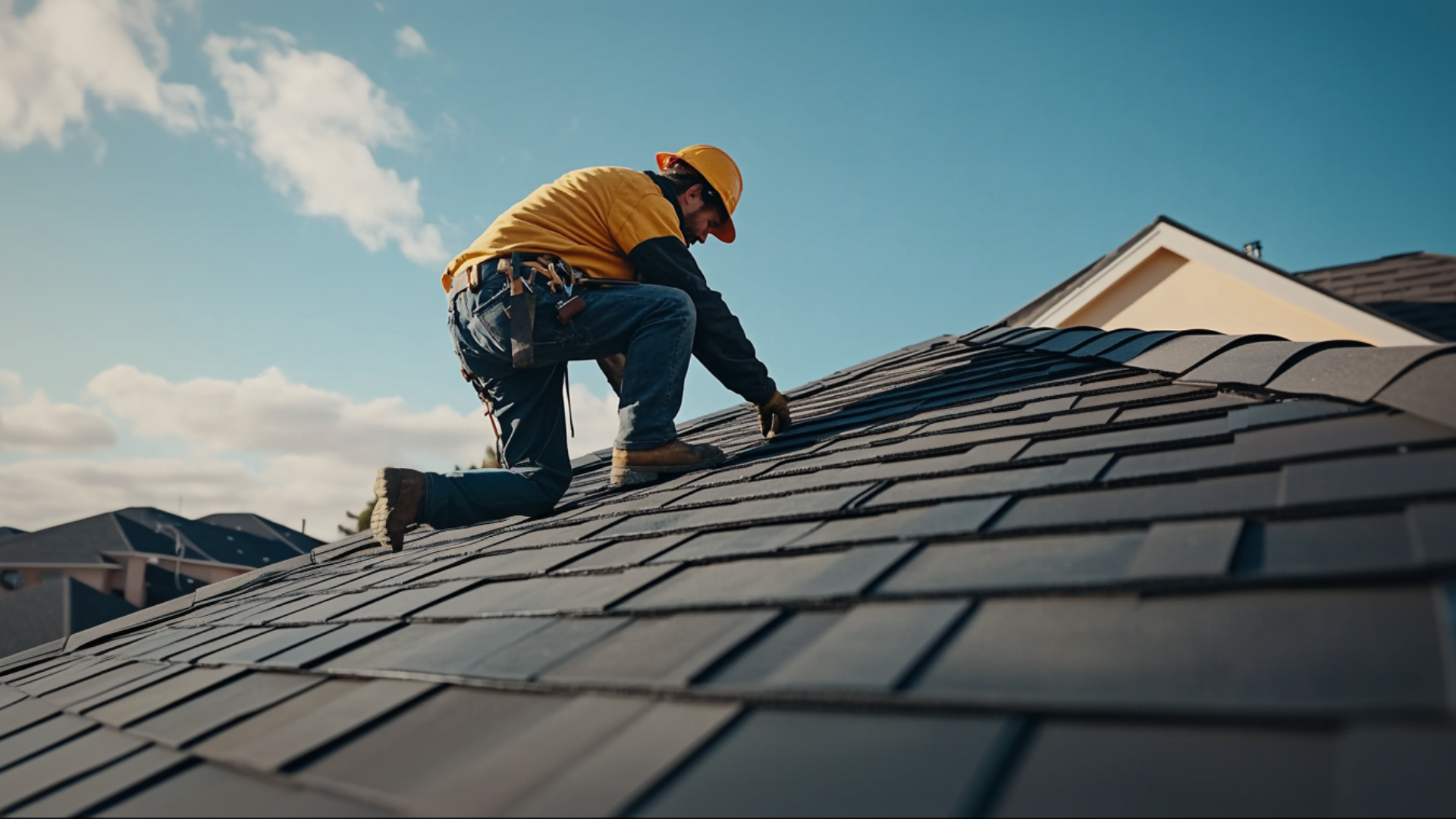
Roof Type - Key Benefits - Sky Roofing Construction & Remodeling
Key Benefits of Choosing the Right Roof Type for Your Home
Choosing the right roof type for your home is a critical decision that can significantly impact your property’s aesthetics, durability, and energy efficiency. Each roof type offers unique benefits that cater to different climates, architectural styles, and personal preferences. Understanding these advantages not only helps enhance the overall curb appeal of your home but also plays a pivotal role in protecting it from weather conditions, improving insulation, and reducing maintenance costs. Selecting a roof that aligns with your home’s needs ensures long-term value, comfort, and peace of mind. Explore the key benefits of various roof types and make an informed choice that will serve you well for years.
Increased Home Value and Curb Appeal
Selecting the right roof type is crucial for enhancing curb appeal and increasing home value. A well-chosen roofing material, whether designer shingles or more affordable types, can dramatically transform your home’s overall aesthetic by incorporating design elements that complement your home’s architectural style. High-value homes often feature roofs that include shingles, such as traditional asphalt or natural wood, which look appealing and offer durability and water resistance to prevent water leaks.
Additionally, for homes with a more complicated design, vertical wall installations or unique roofing patterns can add a layer of sophistication, making the house more attractive to potential buyers. Roofs that balance aesthetics and functionality, such as those designed for hurricane preparation, ensure safety and resilience—choosing a viable option that blends beauty and security, whether a primary type or a more intricate and customized roof, can be a significant selling point. This attention to detail influences luxury property insurance rates and elevates the home’s marketability. Investing in the appropriate roofing options elevates your property’s beauty and creates a lasting impression that resonates with prospective buyers, ultimately contributing to its overall market value.
Improved Weather Protection and Longevity
Improved weather protection plays a crucial role in enhancing the longevity of roofing materials, ensuring they withstand harsh conditions, including extreme weather conditions while minimizing the risk of weather-related damage. Regular inspections and proactive roof maintenance are essential for identifying potential issues early and extending the roof’s lifespan. Among the various roofing options, slate roofing and traditional roofing materials like wooden shakes and composite shingles stand out for their durability and aesthetic appeal. For example, composite shingles from materials such as ethylene propylene diene monomer offer excellent weather resistance, particularly in areas prone to wind-resistant needs.
In addition, selecting the appropriate type of asphalt shingle or color options can further enhance a roof’s ability to complement contemporary homes or more traditional styles. Homes with a steeper slope often benefit from more wind-resistant materials, which protect against extreme weather conditions. Natural materials like slate and wooden shakes offer robust protection and add timeless elegance, making them ideal for homeowners looking for long-lasting solutions. By investing in durable roofing materials and committing to routine inspections and maintenance, homeowners can enjoy the dual benefits of a beautiful roof that provides excellent weather protection and longevity.
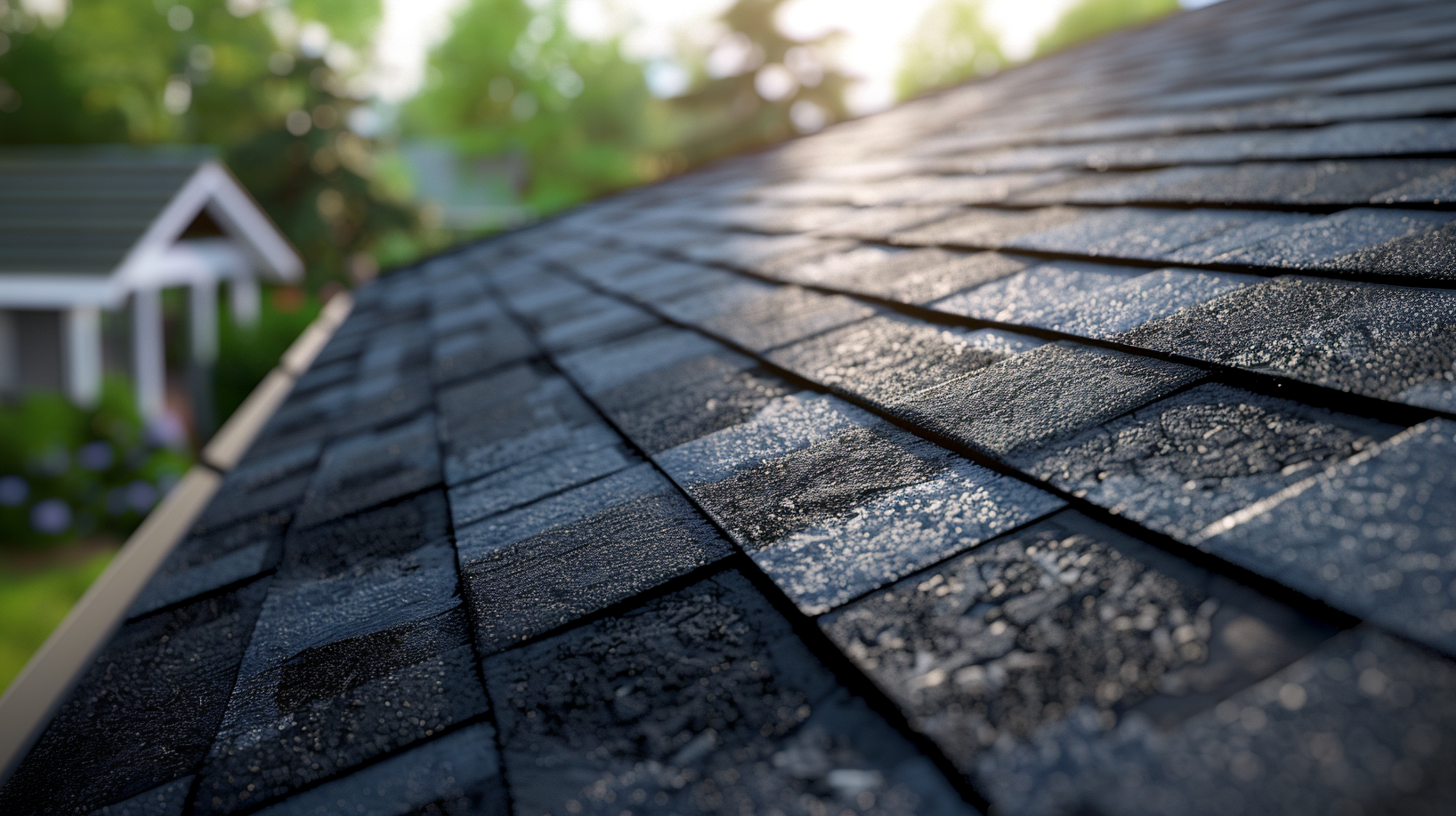
Roof Type - Comparing Popular - Sky Roofing Construction & Remodeling
Comparing Popular Roof Types
Understanding the various types of roofs and their unique characteristics is essential when selecting the right roof for your home or building. Typical roofing materials like asphalt shingle roofs, concrete tiles, and clay tile each offer distinct advantages, aesthetic appeal, and functional benefits that cater to specific needs, climate conditions, and architectural preferences. For example, green roofs provide eco-friendly benefits, while slate roofs are known for their durability and timeless elegance.
By comparing common types, such as asphalt shingle roofs and slate roofs, with other types of roofing material options, you can make an informed decision that aligns with your goals and enhances the overall value of your property. Whether you seek a traditional look with common types like concrete or clay tiles, a modern design with green roofs, or superior longevity with slate, the suitable roofing material can significantly impact your project’s success and your home’s long-term performance.
Asphalt Shingles vs. Metal Roofing
When comparing asphalt shingles and metal roofing, several vital factors include durability, maintenance requirements, and energy efficiency. Asphalt shingles, one of the most popular roofing materials, typically last around 15 to 30 years and require regular maintenance, such as repairing damaged architectural shingles or wood shingles and cleaning debris to ensure proper water runoff. In contrast, metal roofing, which includes options like metal panels and metal shingles, boasts an impressive lifespan of 30 to 80 years, alongside superior fire resistance, making it especially suitable for dry climates where fire hazards are a concern.
Additionally, metal roofs reflect solar heat, enhancing energy efficiency and lowering cooling costs. Metal roofing also accommodates various customization options, including styles for low-sloped roofs, curved roofs, and a broad selection of colors, ensuring aesthetic appeal that complements any architectural design. Metal panels offer an appealing and durable solution for homes with exposed roof beams. Concrete tile roofs provide a long-lasting alternative, especially in regions with low water runoff. By weighing these benefits, it’s clear that while asphalt shingles are a popular roofing material, metal roofing provides long-term durability, energy efficiency, and fire resistance advantages.
Tile Roofing vs. Slate Roofing
When comparing tile and slate roofing, both options showcase remarkable durability and longevity but differ significantly in their characteristics. Slate roofing is renowned for its impressive lifespan, typically between 50 and 200 years, making it one of the most durable roofing materials available. In contrast, clay tile roofs, often seen in modern homes, offer a variety of costs and are generally expected to last between 30 and 50 years, depending on the specific materials used. Tile roofing, which includes flat and Spanish styles, provides excellent wind resistance and protects against water damage, making it ideal for areas prone to harsh weather.
Installation varies considerably: slate roofing requires specialized skills due to its weight and fragility, whereas clay tile roofs are often easier to install and can be more versatile in design. Additionally, clay tile roofs provide better air circulation in the attic space, which can help maintain comfortable indoor temperatures. While slate roofing generally comes at a higher initial cost due to its longevity and aesthetic appeal, tile roofing presents a more budget-friendly option with a decent lifespan, making each choice suitable for different homeowner needs. Moreover, the decision between tile and slate roofing will depend on desired longevity, wind resistance, overall budget, and aesthetic preference.
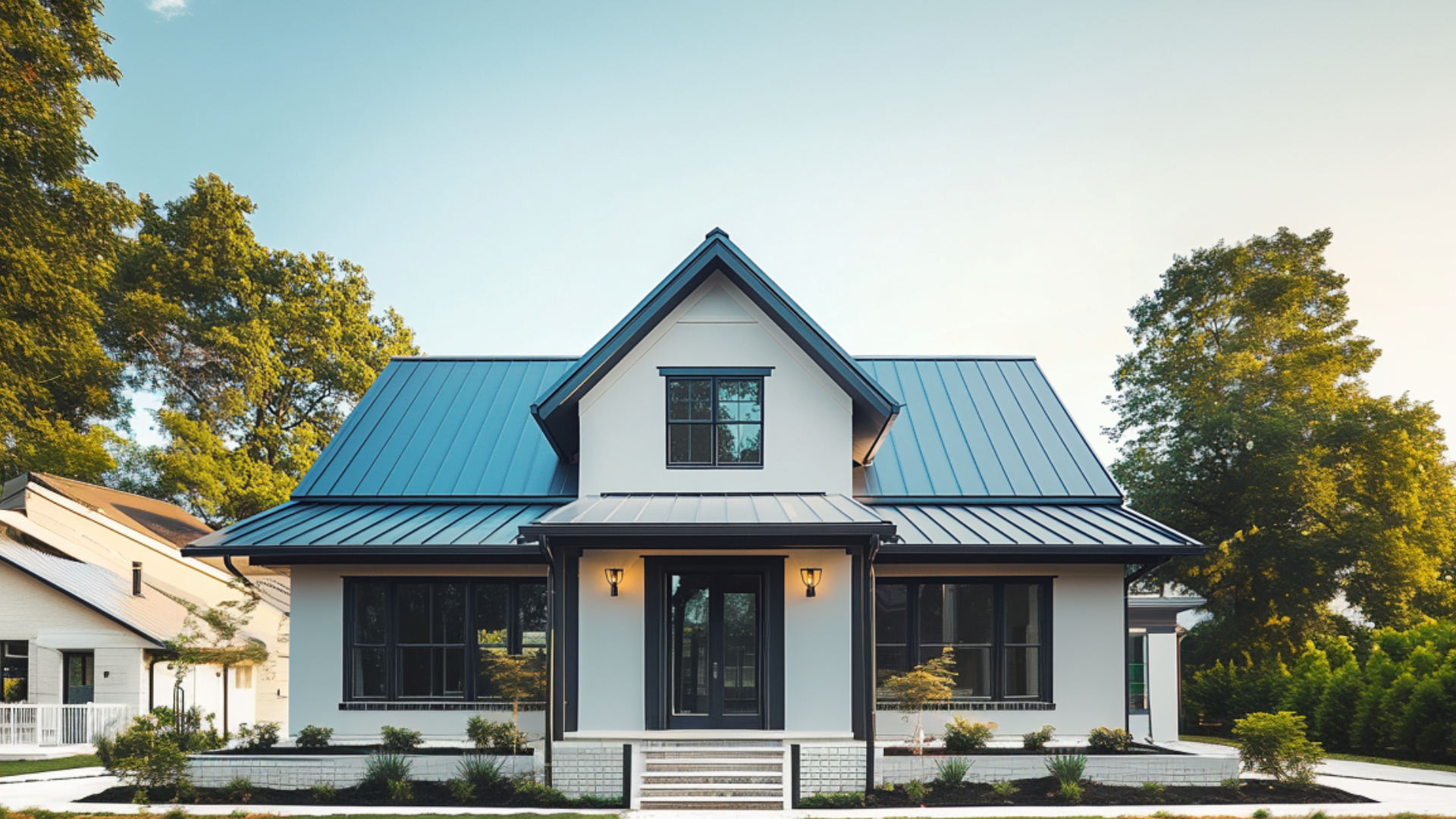
Roof Type - How Roof Type - Sky Roofing Construction & Remodeling
How Roof Type Impacts Energy Efficiency and Durability
When selecting a roof type for your home or commercial building, it’s essential to consider aesthetics and how energy-efficient and durable the material is. Different roofing materials, such as seam metal roofing, slate tiles, and various roof styles, can significantly influence how well a structure retains heat, resists weather elements, and ultimately lower energy costs. For instance, seam metal roofing is a popular type that reflects sunlight, reducing heat absorption and making it particularly energy efficient for both residential and commercial buildings.
Some roof types, like slate tiles, offer superior durability and weather resistance, which makes them ideal for long-term investment. The right choice enhances your property’s longevity and boosts its energy performance. Understanding the relationship between roof type, energy efficiency, and durability can help you make an informed decision that aligns with your needs and promotes sustainable living.
Reflective Roofs for Lower Energy Costs
Reflective roofs are an effective solution for lowering energy costs, primarily by utilizing reflective surfaces that significantly decrease heat absorption, especially in hot climates, thereby reducing cooling expenses. Incorporating modern roofing materials, such as solar reflective shingles or tiles, enhances energy efficiency and complements traditional or solar materials, creating a synergistic effect that maximizes overall performance. This type of roof is especially beneficial for flat roofing and low-slope roofs, commonly found in commercial buildings and hot climates where energy efficiency is crucial.
While reflective roofs may not always be the cheapest roofing material upfront, they can lead to substantial long-term financial advantages. Homeowners may experience lowered utility bills and significant savings over time, offsetting the initial investment. Additionally, reflective roofs can contribute to increasing the value of a home, making them a worthwhile investment when considering roof replacements. Working with a skilled roofing contractor ensures proper installation, boosting energy efficiency and home value benefits. With the dual benefits of reducing energy expenses and increasing home value, reflective roofs represent an intelligent choice for environmentally conscious homeowners seeking sustainable solutions.
Choosing Durable Materials for Long-Term Performance
Choosing durable roofing materials ensures long-term performance and protects your home or industrial buildings. Not only do they safeguard the structure from wind damage, heavy snowfall, and wet climates, but they also enhance the overall value of the property. Among the durable types available, metal roofing is an excellent choice for residential buildings and industrial applications. Metal roofing is known for its resistance to wind damage, long lifespan, and variety of colors, making it an attractive option for homeowners seeking durability and aesthetic appeal.
While some types of metal roofing may be considered more expensive, the investment pays off in reduced maintenance costs and superior protection against the elements. Metal roofing and other durable materials are especially beneficial for regions prone to wet climates or heavy snowfall. Additionally, these materials are compatible with solar energy installations, further increasing their appeal in eco-friendly and energy-efficient homes. When selecting roofing materials, it is essential to strike a balance between cost, longevity, and warranty options, as these factors collectively influence the long-term benefits of your investment. By prioritizing durable materials, you can secure your home’s integrity while minimizing future expenses related to repairs and upkeep.
Selecting the Right Roof Type for Lasting Value and Performance
Choosing the right roof type is crucial for your property’s long-term durability, energy efficiency, and aesthetic appeal. Whether you’re interested in metal roofing, tile, or slate, Sky Roofing Construction & Remodeling (https://skyroofingconstructiontx.com) offers expert guidance to help you select the ideal roofing material for your specific needs. With years of experience and a commitment to quality, Sky Roofing ensures a seamless installation process. Contact them at (210) 942-9797 to schedule a consultation and elevate your home’s protection and value with a top-tier roofing solution.
The post How Roof Type Impacts Your Home’s Durability and Value appeared first on Roofing Contractor San Antonio - Sky Roofing Construction & Remodeling.
from Roofing Contractor San Antonio – Sky Roofing Construction & Remodeling https://skyroofingconstructiontx.com/roof-type/
via Sky Roofing Construction & Remodeling
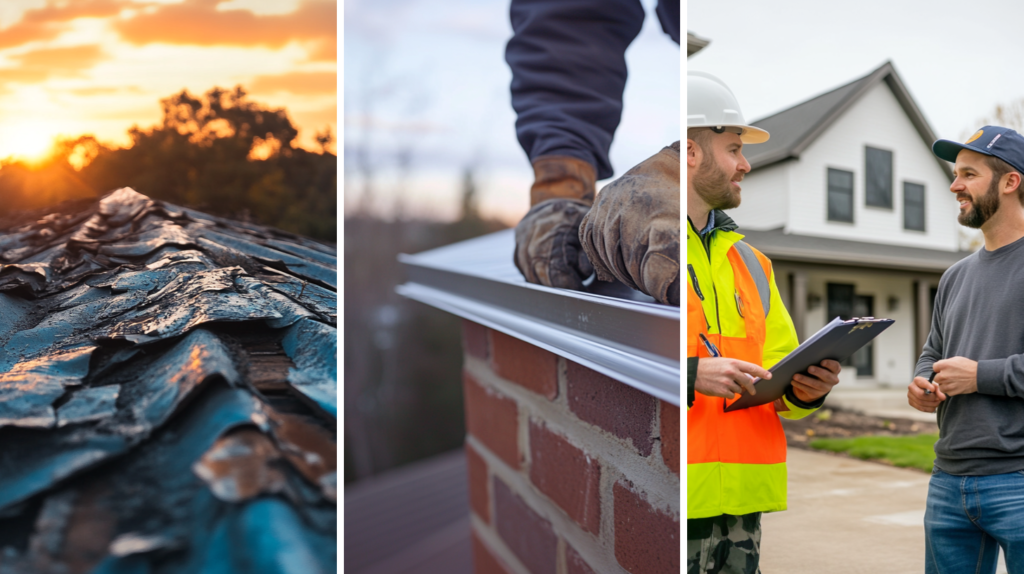
No comments:
Post a Comment